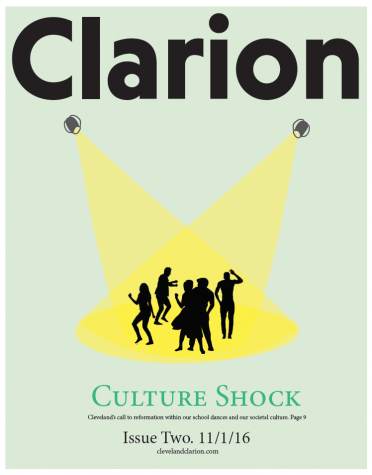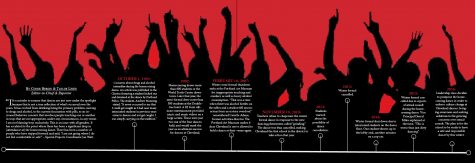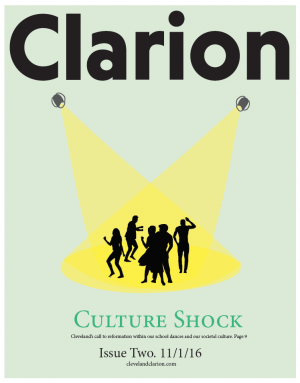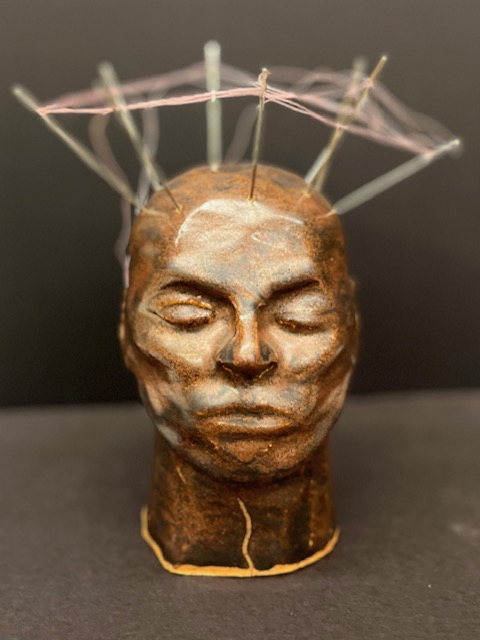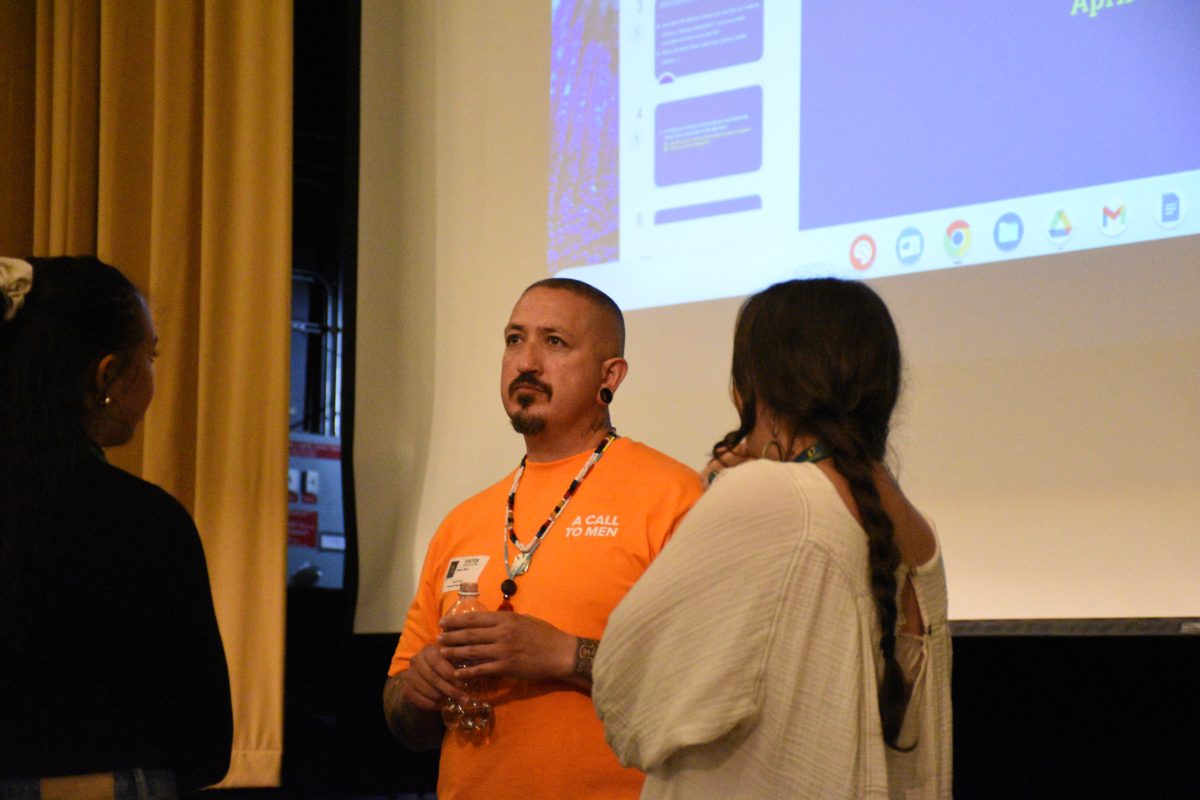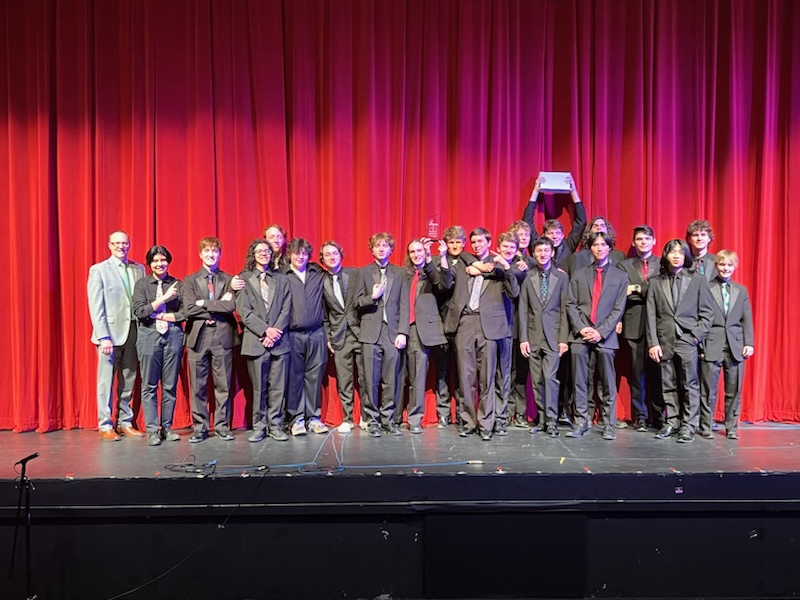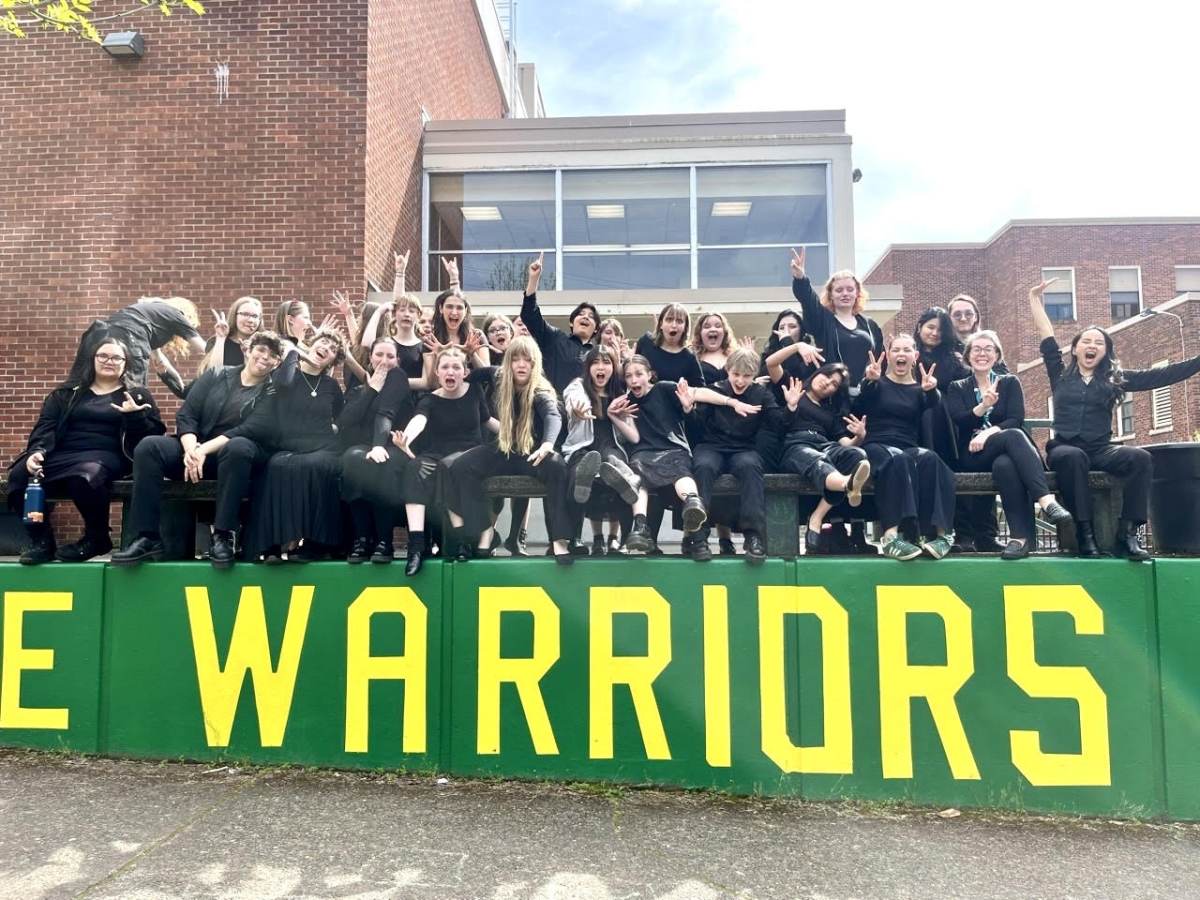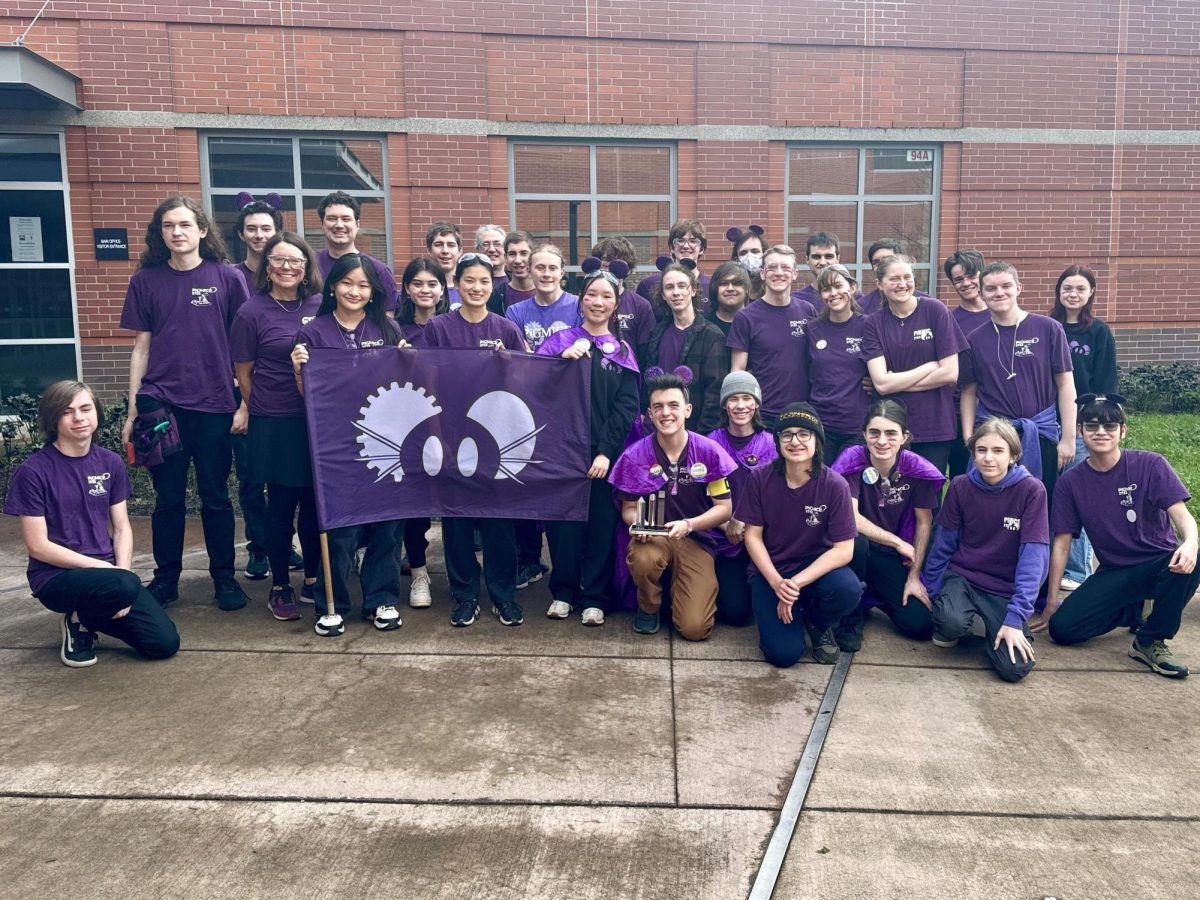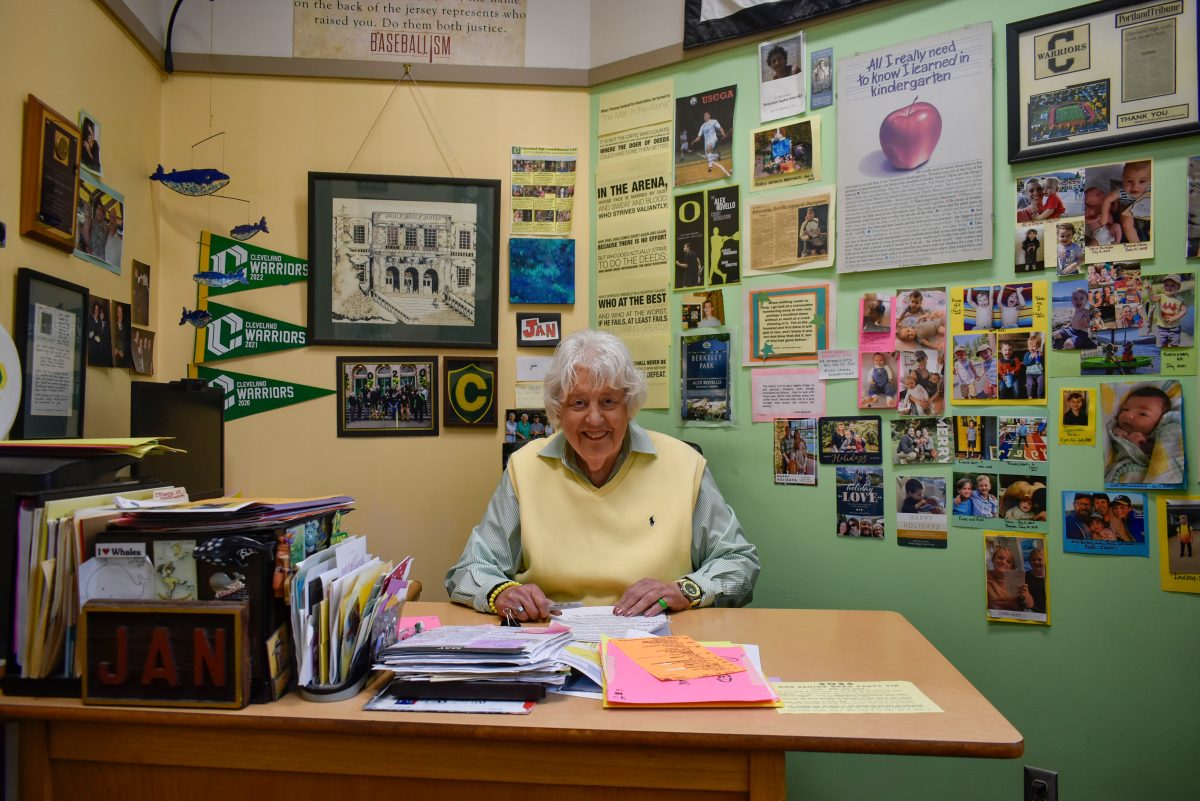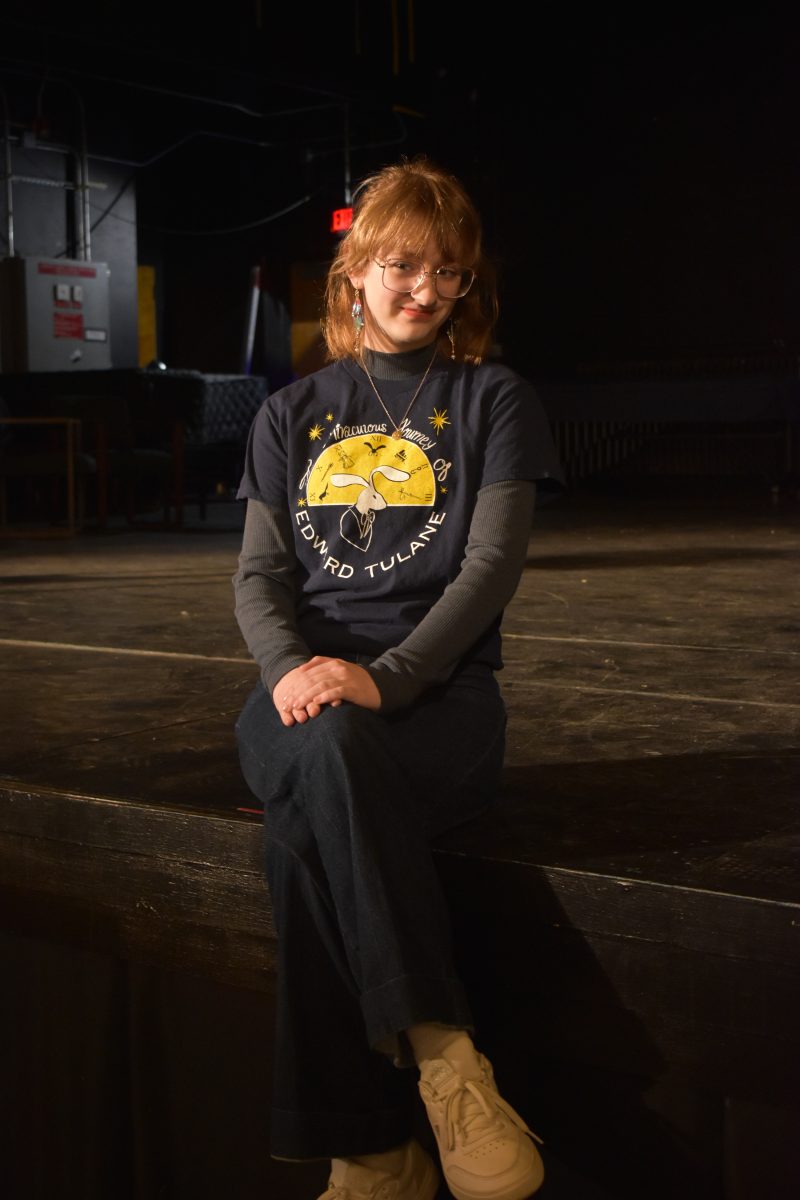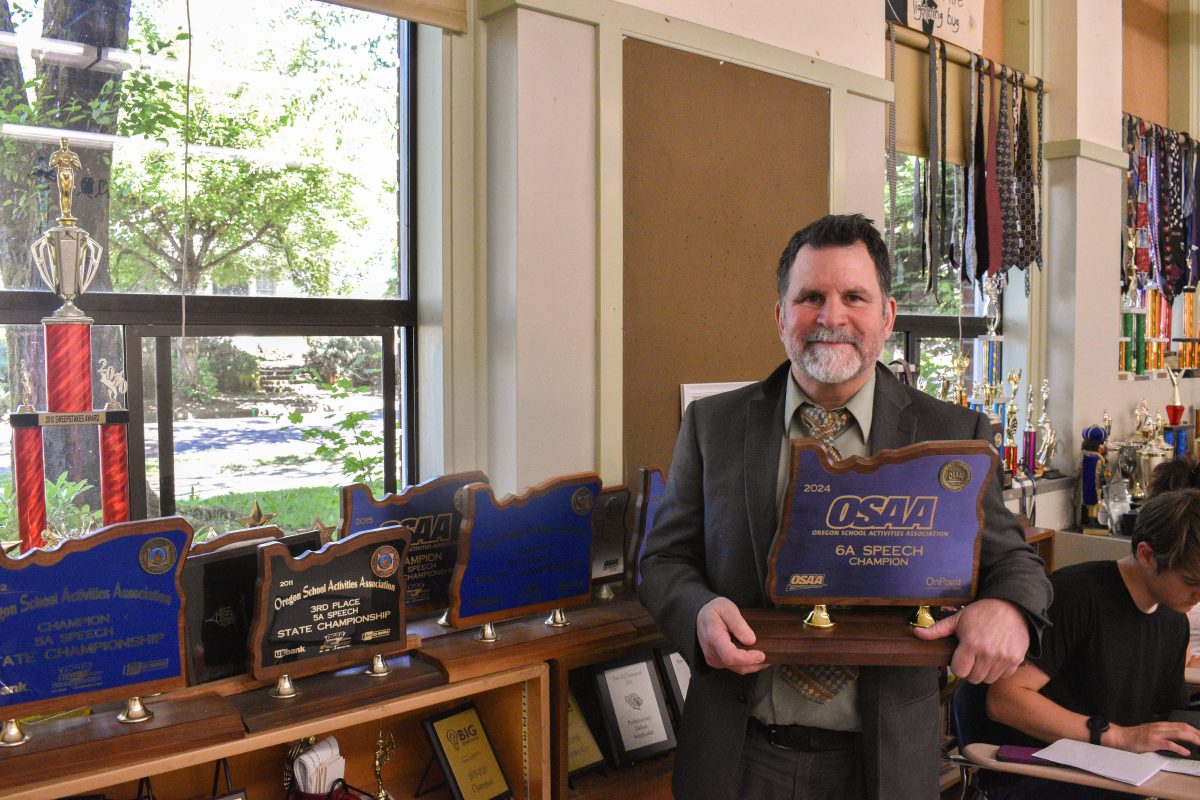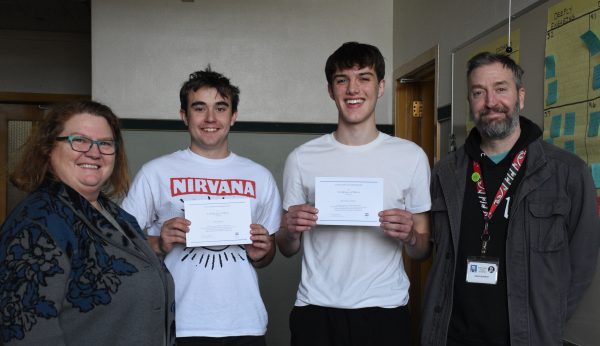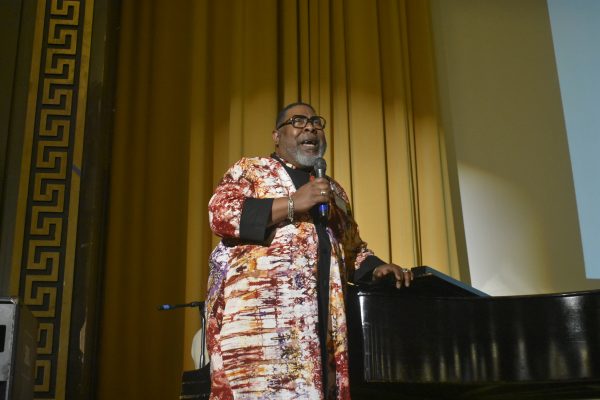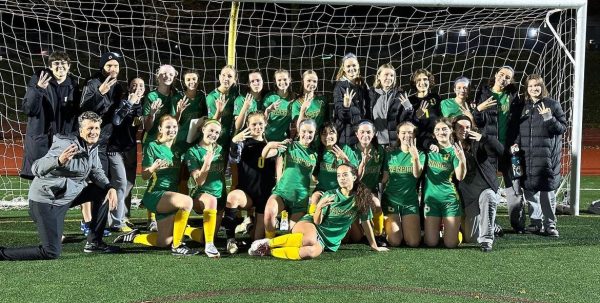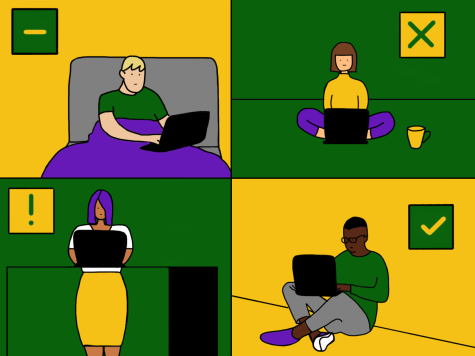Culture Shock: The Problem with School Dances
The leadership class postponed the homecoming dance due to a deeper issue that needs to be addressed: the culture around sexual assault

Graphic by Lina Clark
October 25, 2016
We have a problem. A problem that doesn’t begin and end with our school-sanctioned dances. But instead, a cultural dilemma rooted in the minds of our students, and perpetuated through events like the homecoming dance. We are not alone in our problem — it stretches worldwide, extends to all college campuses, and forces students out of educational systems. It is sexual assault.
Our homecoming dance is a hole that swallows you up, and spits you out with the lingering feeling of unwanted hands. It is hundreds of sweaty bodies, pressed together in a groping throng. Eric Mirsepassi, the new leadership teacher, described homecoming as being like, “Stuck in a mass of humanity.” Our dance is unsafe.
Senior Maggie Winicki said, “My freshman year, people were pulling down girls’ skirts. We just let these assaulters walk around like nothing has happened, when really, they need help.”
The Monday after, when you see the boy who inappropriately grabbed you, laughing with his friends, you’re uncomfortable. And that boy, who touched his classmates without consent, goes about his day, possibly being “applauded for his sexual prowess,” as sophomore Bennett Gaeta said, unaware of the physical and mental impacts he has bestowed upon so many students.
This boy isn’t a minority in his action, and assault behavior is not only restricted to one gender. However, the victims of assault at our dances aren’t a minority, either, and they are left within a school, that until this year, has continued supporting a dance revolving around rape culture.
Cleveland’s junior/senior leadership class is responsible for the planning and production of our homecoming dance. This year, when dance discussion began, Mirsepassi explained that after an impromptu poll, he found that 90 percent of his class would not be attending the dance that they had designed. This points to an obvious problem. When the organizers of an event aren’t even comfortable attending, is there a need for reformation?
Yes, there is, and as Principal Tammy O’Neill said, “I was having a hard time looking into the faces of parents and saying, ‘Your daughter is going to be safe at this dance.’”
When we were preschool and elementary students, and we couldn’t keep our hands to ourselves, there were consequences. Those repercussions usually involved the short-term removal of an item or upcoming event. This situation frequently ended in tears and an abundance of complaints.
At our dances, we act like children, incapable of respecting the boundaries of those around us, but unlike our younger selves, we have major and enduring negative effects on our classmates, and in consequence we temporarily lost our dance. However, we are not children. Instead of crying and complaining, as Brie Gaeta explained, “We need to change the culture of our dances, not just the dance,” and begin to solve the problem Cleveland High School has with enabling sexual assault. Right now, Cleveland is a breeding ground for non-consensual sex and assault, by addressing and confronting our issues, students can be pioneers for a safer community.



